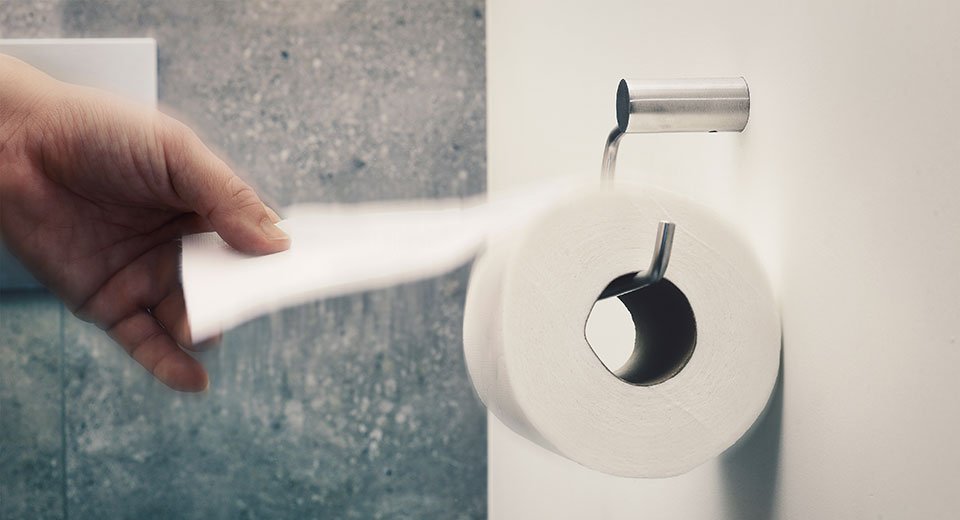Asking for a friend: how do you know when you’re pooping enough?

Do you know what your poop says about you?
For starters, your bowel habits might be a clue as to where you live. In the United States, for example, the traditional advice is to have one solid bowel movement a day. But that’s not true in other parts of the world.
“The norm is different depending on where you live on the globe; in the Eastern Hemisphere as opposed to the Western Hemisphere,” said Peter Hopewood, MD, FACS, a surgeon at Falmouth Hospital who specializes in colon and cancer surgeries. “In some African places, they will probably never have a solid bowel movement in their lives. … That’s because their diets are high resin, high fiber, unprocessed or under-processed grains.”
The bowel is where nutrients are separated from the waste material the body then expels. If the stool passes through too slowly it means constipation. If it moves too quickly, it’s diarrhea. Doctors can use the Bristol Stool Form Scale (BSFS) -- a chart of stool styles and forms -- to help patients describe what’s happening with their bodies.
But doctors say there is no one-size-fits-all standard for pooping. People on vegetarian diets, for example, may have more bowel movements per day than those who eat more red meat and processed food. Some people may poop three times a week; others, three times a day.
Scientists are studying whether the slower movement of stool through the colon, which means the stool is in contact with the colon longer, contributes to increased rates of diverticulitis and colorectal cancers in Western countries. Diverticulitis attacks happen when solid material gets caught in the small ridges or pouches of the colon and they become inflamed, causing pain.
Dr. Hopewood suggests it’s better to keep stool soft and to encourage healthy bacteria in your gut, also known as the biome, and to do it through diet, not pills, he said.
“I’m a big believer in having people on high-fiber diets,” Dr. Hopewood said. “Have soft bowel movements and also have a diet that’s high in probiotics because there’s data showing that probiotics actually stimulate your immune system.”
Probiotics are live microorganisms found in yogurt and unprocessed fermented foods as well as dietary supplements, according to the National Institutes of Health. They contain a variety of microorganisms such as bacteria belonging to groups called Lactobacillus and Bifidobacterium.
Foods high in probiotics include yogurt with live cultures; kimchi or fermented cabbage; pickles; some cheeses; and miso.
“What’s good for your poop are the things highest in probiotics,” Dr. Hopewood said.
When to Worry
So, how do you know when your bowel habits might not be “normal?” The American Cancer Society lists these warning signs:
- Diarrhea, constipation, or narrowing of the stool that lasts for more than a few days
- Blood in your stool
- Persistent stomach cramps or pain
- Unintended weight loss
- Weakness and fatigue
- The feeling that you need to have a bowel movement that's not relieved by having one.
The cancer society recommends those at average risk be screened for colorectal cancer beginning at age 45. Screening can include testing a stool sample for blood or having a colonoscopy, which allows a doctor to check for polyps or cancer inside the rectum and the entire colon. The preparation for colonoscopy has gotten easier, said Dr. Hopewood. It can now be accomplished by mixing prescribed laxatives with Gatorade or ginger ale. He warned against being one of the “unworried well” -- patients who don’t know they have cancer because they don’t get screened.
“The colonoscopy is the gold standard, but any screening is better than none,” he said.
